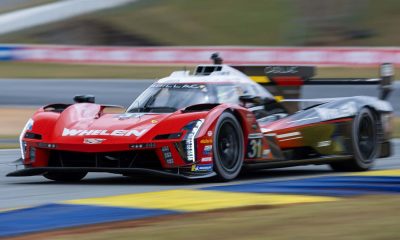Travel
Why You Should Visit the Scilly Isles Before It’s Too Late

Located 28 miles off the coast of Cornwall, the Isles of Scilly are a hidden gem waiting to be explored. With their sub-tropical feel, blue seas, and white sandy beaches, the Isles of Scilly are perfect for a summer getaway. However, the archipelago is facing the threat of climate change, with rising sea levels putting the islands at risk. The Council of the Isles of Scilly has developed a Climate Change Action Plan to protect the islands, making it more important than ever to visit the Scilly Isles before they are impacted by the effects of global heating.
The Isles of Scilly are known for their stunning natural beauty, recently being voted the most scenic destination in the UK. Nature lovers will be in paradise on these islands, with opportunities to see puffins, grey seals, sharks, and dolphins. With a unique biodiversity under threat from climate change, visiting the Scilly Isles is not only a breathtaking experience but also a chance to witness and support conservation efforts.
One of the best ways to appreciate the landscapes of the Isles of Scilly is through camping. Imagine waking up to the sound of the waves crashing on the shore and unzipping your tent to reveal tropical-looking white sand beaches. The warmer weather on the Isles means that camping can be a delightful experience, allowing you to connect with nature in a way that is rare in the UK. Additionally, foodies will be delighted with the fresh seafood options available on the islands, with dishes made using ingredients sourced directly from local fishermen.
If you’re considering a trip to the Isles of Scilly, there are several ways to get there. You can choose to fly by helicopter or plane, arrive by sea on a ferry, or even visit as part of a cruise. With multiple travel options available, it’s easy to plan your journey to these picturesque islands. Island hopping is a popular activity, with numerous trips offered by different boat services. Whether you choose to visit in the summer or explore the islands during the off-season, the Isles of Scilly offer a unique and unforgettable experience for all types of travelers.
In light of the increasing threat of climate change, the need to visit and support the Isles of Scilly has never been more urgent. By booking a trip to these stunning islands, you can not only enjoy their natural beauty but also contribute to conservation efforts. With rising sea levels and coastal erosion posing a risk to the Scilly Isles, there is no better time to appreciate and protect this unique destination. Plan your visit to the Isles of Scilly today and experience the magic of these remote and enchanting islands before they are forever changed by the impacts of global heating.

-

 Politics3 days ago
Politics3 days agoLatest news on the 2024 election: Biden fundraising in San Francisco and Seattle regions
-

 News3 days ago
News3 days ago£132,000 farmhouse on the brink of 150ft cliff starts demolition as owner evacuated – neighbor vows to stay until his death.
-

 Politics3 days ago
Politics3 days agoThe Biden Administration’s decision to publicly confront Israel over Rafah
-

 Uncategorized3 days ago
Uncategorized3 days agoThe Washington Post – Breaking news and latest headlines, U.S. news, world news, and video
-

 News3 days ago
News3 days ago16-year-old accused of defacing World War I statue in New York City
-

 Lifestyle3 days ago
Lifestyle3 days agoSelena Gomez shares adorable photo with Benny Blanco amidst Justin Bieber baby news
-

 Sport3 days ago
Sport3 days agoJulian Edelman remembers awkward backstage encounter between Robert Kraft, Bill Belichick at Tom Brady’s roast
-

 Tech3 days ago
Tech3 days agoHere's an In-Depth Look at How Cadillac Made it to Le Mans In 2023














